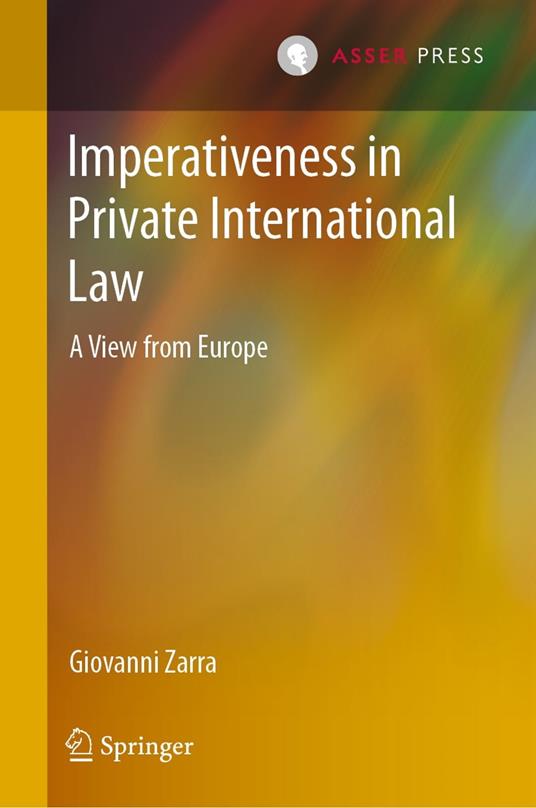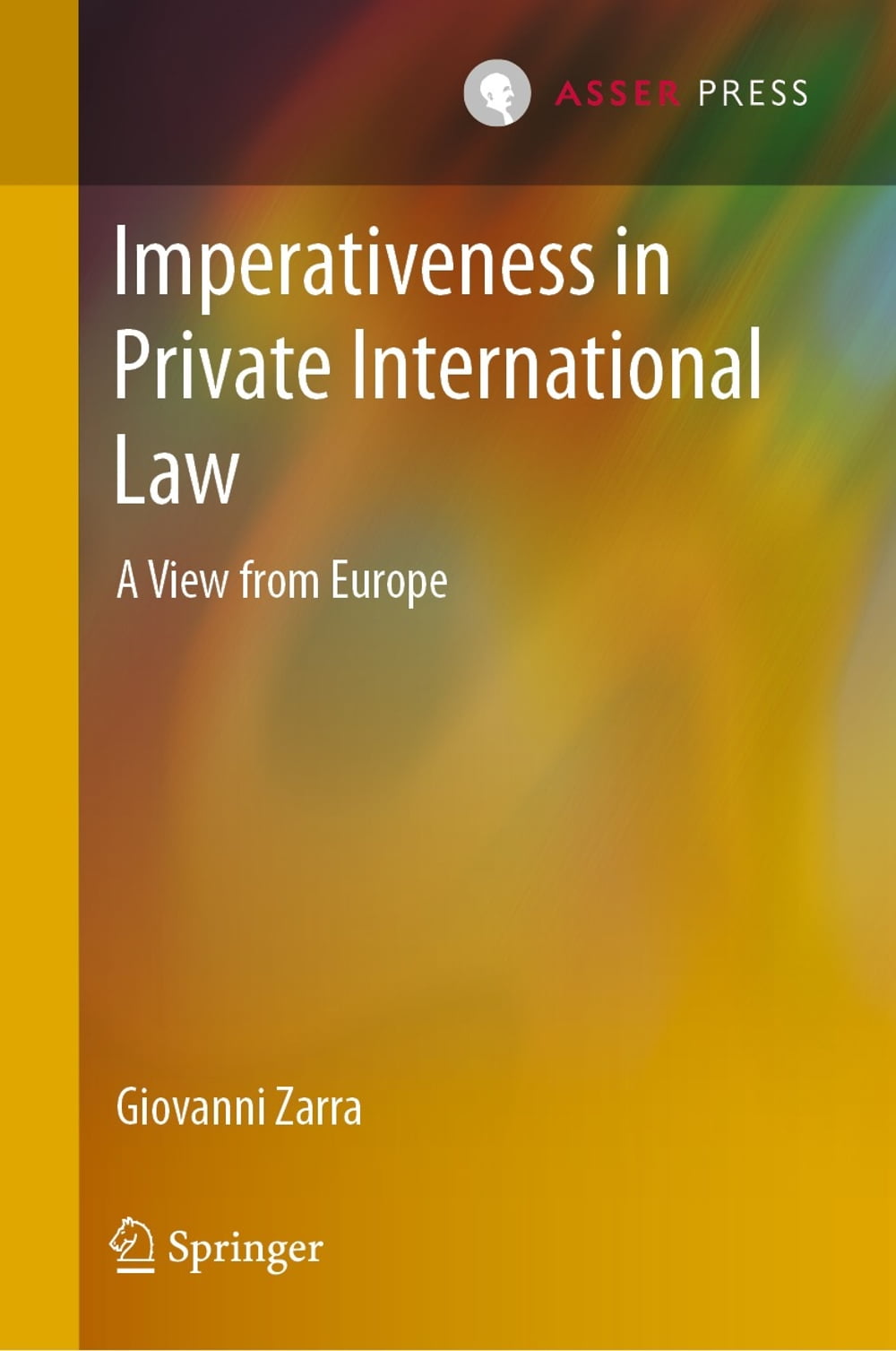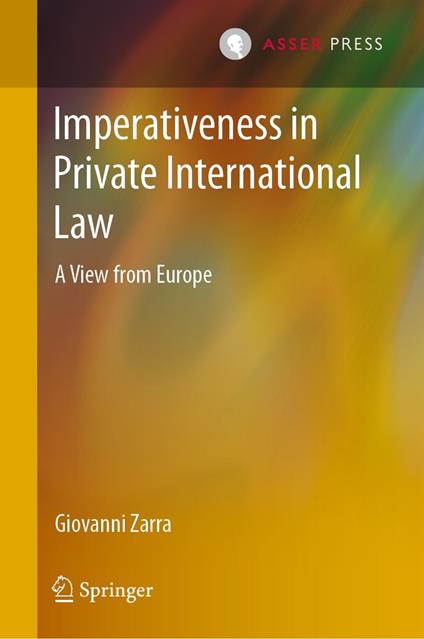Imperativeness in Private International Law
This book centres on the ways in which the concept of imperativeness has found expression in private international law (PIL) and discusses “imperative norms”, and “imperativeness” as their intrinsic quality, examining the rules or principles that protect fundamental interests and/or the values of a state so as to require their application at any cost and without exceptions. Discussing imperative norms in PIL means referring to international public policy and overriding mandatory rules: in this book the origins, content, scope and effects of both these forms of imperativeness are analyzed in depth. This is a subject deserving further study, considering that very divergent opinions are still emerging within academia and case law regarding the differences between international public policy and overriding mandatory rules as well as with regard to their way of functioning. By using an approach mainly based on an analysis of the case law ofthe CJEU and of the courts of the various European countries, the book delves into the origin of imperativeness since Roman law, explains how imperative norms have evolved in the different conceptions of private international law, and clarifies the foundation of the differences between international public policy and overriding mandatory rules and how these concepts are used in EU Regulations on PIL (and in the practice related to these sources of law). Finally, the work discusses the influence of EU and public international law sources on the concept of imperativeness within the legal systems of European countries and whether a minimum content of imperativeness – mainly aimed at ensuring the protection of fundamental human rights in transnational relationships – between these countries has emerged. The book will prove an essential tool for academics with an interest in the analysis of these general concepts and practitioners having to deal with the functioning of imperative norms in litigation cases and in the drafting of international contracts. Giovanni Zarra is Assistant professor of international law and private international law and transnational litigation in the Department of Law of the Federico II University of Naples.
-
Autore:
-
Anno edizione:2022
-
Editore:
-
Formato:
-
Lingua:Inglese
Formato:
Gli eBook venduti da Feltrinelli.it sono in formato ePub e possono essere protetti da Adobe DRM. In caso di download di un file protetto da DRM si otterrà un file in formato .acs, (Adobe Content Server Message), che dovrà essere aperto tramite Adobe Digital Editions e autorizzato tramite un account Adobe, prima di poter essere letto su pc o trasferito su dispositivi compatibili.
Cloud:
Gli eBook venduti da Feltrinelli.it sono sincronizzati automaticamente su tutti i client di lettura Kobo successivamente all’acquisto. Grazie al Cloud Kobo i progressi di lettura, le note, le evidenziazioni vengono salvati e sincronizzati automaticamente su tutti i dispositivi e le APP di lettura Kobo utilizzati per la lettura.
Clicca qui per sapere come scaricare gli ebook utilizzando un pc con sistema operativo Windows



